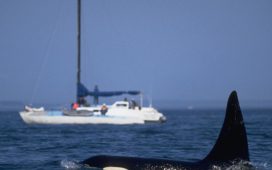Every minute of every day for a thousand years a great roar has greeted those who come to this part of the river. It is thunder without a beginning or an end; a tumultuous rush of water down a mill race that is engorged in flood and unchecked by drought. Such is the consistency of the Ivel’s flow through the seasons that medieval millers dug a leat along just about every mile of the river’s length and harnessed the ceaseless power of its current.
All through this summer, the bass rumble picked up on the approach to the mill race has been capped by a shrill descant. In early May, a male sedge warbler set up his stall only a child’s stone throw from the pounding surf, as if in opposition. A willow tree became his backdrop, the reeds his platform.
This bird has never suffered from stage fright. He often shins up a stem, throwing his head this way and that, in look-at-me poses, exposing his light throat, the vivid stripe through his eye cocked provocatively.
Until a week ago, he was behaving as a wannabe skylark, making little bush-clearing leaps into the air. Once I saw him emboldened to mount the sky, a 10-metre ascent that ended with a jazz hands splay of fixed wings and a stiff parachute glide back down to the reed tops.
And all the time he sings. An unbroken chain of trills and stuttering chatter, he fills the gaps between notes with more notes, bridging volleys of varying pitch and rhythm with high cymbal-clash whoops. He is in a dialogue with self, a furious argument going on in the back of his throat, an inexhaustible tirade that exhausts the listener.
Earlier in the month, the solo became a duet. Another sedge warbler from the weir upstream crept closer until it settled for a perch on the other side of the willow. The two birds now trade off their song like neighbours boasting sound systems through a party wall. There is probably no aggressive intent in this, for sedge warblers are thought only to sing to attract a mate. And for both these birds, a mate that is dead, gone, or never came.











